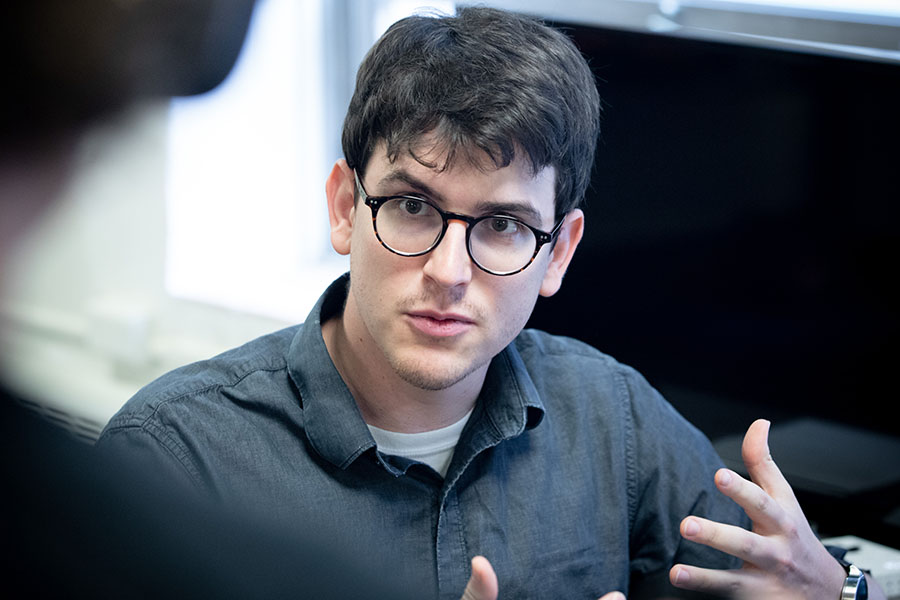People with IDD can benefit greatly from technologies — but it is not often that technology is built for people with IDD. At MMI, we are uniquely prepared to lead the effort to change this.
Technology is integral to almost every aspect of life, including education, employment, transportation and recreation. However, people with intellectual or developmental disability are often one of the last groups to receive the benefits of technological advancements, impacting their ability to live independent lives.
Often, this is due to the need for personalization of the technology and the lack of understanding of the person’s needs. These issues can lead to a lack of access to life-changing technologies, limited access to services and can have a major impact on the people we serve at the Munroe-Meyer Institute.
For example, early life learning is done through play. However, play can be challenging for some due to mobility or motor skill limitations. Toys often are not designed with people with IDD in mind, and mobility issues can be challenging to address due to repeated high costs. At MMI, we are addressing these gaps through low-cost technologies, such as an adaptive toy library and our GoBabyGo program. Technology can make play and mobility equipment accessible and affordable, improving developmental trajectories.
During adolescence, play remains an important part of development. However, this also is when children start to recognize how much work therapy can be. With the need to maintain the level of intensity to continue the child’s growth, MMI must work to address therapy in a way that fits the child’s interests.
For example, we can turn therapy into video games. At MMI, we are building and testing virtual reality therapy games that can supplement upper extremity therapy.
Of course, therapy also continues throughout adulthood. As we all grow and develop greater independence, we all may experience new and more complex life situations. However, for people with IDD, these life skills may be difficult to practice, and mistakes may have major consequences. Technologies such as virtual reality can provide people with IDD an opportunity to practice different life skills, such as crossing the street or receiving a haircut. These experiences can be practiced in a virtual reality environment where failure is not life-altering. Building and testing simulators, allowing people to practice life skills to enable people at their own pace, is going on at MMI right now.
We’ve found that patients and their families are incredibly generous with their time and feedback. The stories they share and the concerns they express make sure that we create impactful technological interventions. Additionally, our clinical teams are enthusiastic about working through the design process and providing expertise to ensure our ongoing technology efforts are drawing from cutting-edge information to inform the development.
This combination of community support, clinicians and engineering is unique. The passion of our innovators, colleagues and partners is what has allowed MMI to position itself as a leader in technology for people with IDD.
